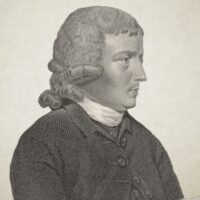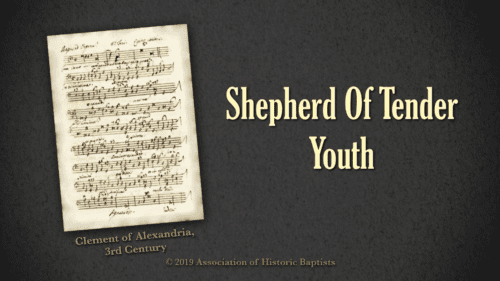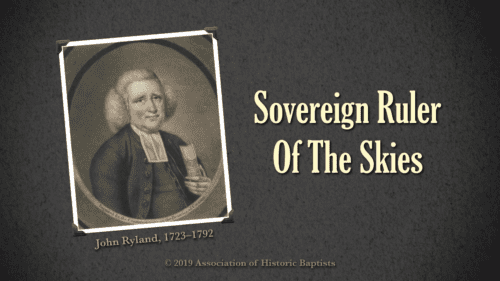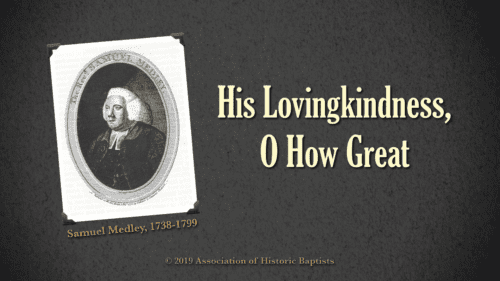Come, Thou Fount
Romans 7:21-25: “I find then a law, that, when I would do good, evil is present with me. For I delight in the law of God after the inward man: but I see another law in my members, warring against the law of my mind, and bringing me into captivity to the law of sin which is in my members. O wretched man that I am! who shall deliver me from the body of this death? I thank God through Jesus Christ our Lord. So then with the mind I myself serve the law of God; but with the flesh the law of sin.”
Robert Robinson (1735-1790) was a sovereign grace preacher, author and hymn writer. He is best known for his invaluable research into the subject of baptism, the substance of which was published in the year 1790, after his death. He is also credited with the hymn, “Come, Thou Fount of Every Blessing”, though some argue it was composed by Lady Huntingdon. His friends, at the time of his death, believed he was hoping to publish several volumes on church history, but only his research on Baptism was compiled and set to print. John Gadsby wrote of him:
Robert Robinson was born at Swaffham, Norfolk, Jan 8th, 1735. In 1749 he was put apprentice to a hair-dresser in London. During his apprenticeship he devoted all his leisure time to reading and study. He also attended the ministry of Gill, Romaine, and Whitefield; and, I believe, joined and preached for the Methodists. He began to preach in 1758, at Mildenhall, and afterwards preached at Norwich. Here he became pastor of a small Independent church. In 1759 he received an invitation from a Baptist church at Cambridge, and preached his first sermon there July 8th, 1759, having been himself previously baptized by immersion. He was on trial two years, and became their stated pastor in 1761, but made it one condition that they should admit of open communion. His income at first was very small, having received only £12s. 5d. from his congregation for the first half year. A person thought he had conferred an extraordinary favor on him by obtruding on his acceptance an old suit of black clothes. Robinson was afterwards dining at his table, with the old clothes on, when the donor said, "Mr. Robinson, I never saw you look so much like a gentleman." "Sir,"replied Robinson, "I cannot afford to look like a gentleman," and immediately emptied the butter-boat over the clothes, and took his leave. In 1709 a new chapel was built for him, his congregation having greatly increased. Soon after this, Mr. Robinson began to distinguish himself as an author, and wrote a work entitled, "A Plea for the Divinity of Christ." In 1781 he wrote "The History of Baptism."
“Come, thou Fount of every blessing," has been usually ascribed to him; but it has, I believe, lately been proved to be Lady Huntingdon's. In June, 1790, he went to Birmingham, first, on account of his health, and, secondly, to preach for Dr. Joseph Priestley, the Socinian. He was, it seems, in a very weak state both of body and mind, but still ventured to preach twice on the Sunday. After preaching, it was manifest that Robinson was a dying man. His bodily strength was exhausted, and his faculties impaired. On the following Tuesday morning he was found dead in his bed, June 8th, 1790. Some have supposed that he committed suicide, but such was not the case.






